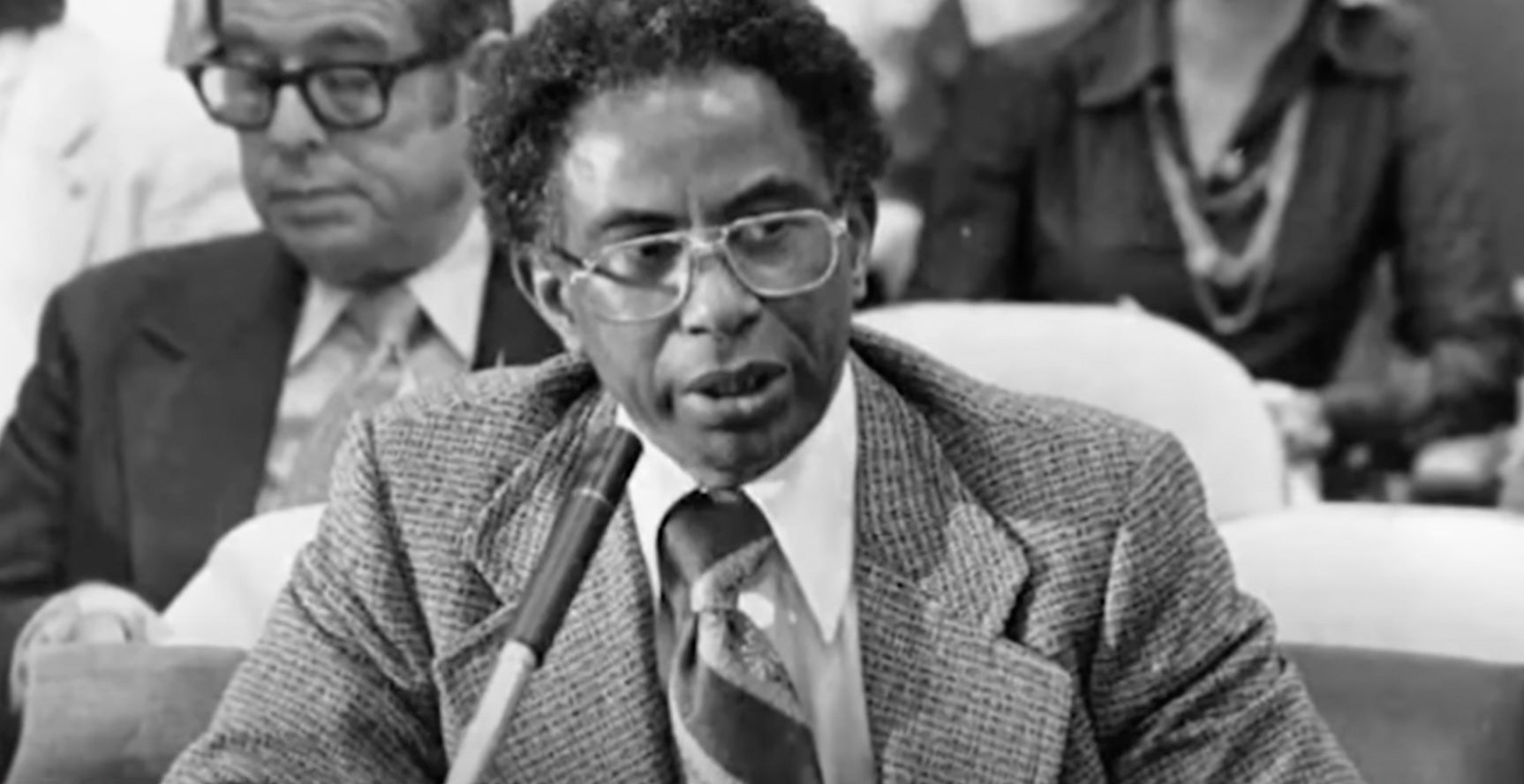
Johnnie A. Jones, Sr., a decorated World War II soldier and civil rights legal titan, passed away on April 23, at a “veteran’s facility in Jackson, Louisiana” at the age of 102.
Born on November 30, 1919 in Louisiana, Jones graduated from Southern University, and at 22, “tested as the first Black soldier for the Warrant Officer position,” before being promoted a year later to warrant officer rank, junior grade. Jones survived bomb attacks and German snipers, but during Normandy’s D-Day invasion, Jones was wounded. Just last year, Jones spoke with Veteran Affairs saying, “I remember it all…Sometimes reminiscing is a terrible thing…I lay down at night, and as soon as I close my eyes, I relive the whole D-Day invasion.”
Nevertheless, when “Jones returned home…he was greeted not with a hero’s welcome, but rather with all the indignities of segregation in the Jim Crow South.” In 1946, a white police officer pulled Jones over, who recounted that “[h]e knocked me down and started kicking me…Things weren’t right. ‘Separate but equal’ was unconstitutional, and I wanted to fight it and make it better.”
Thus prompted his decision to matriculate to law school, where he achieved another milestone, as “the first student to graduate from the Southern University Law Center after it had been accredited in 1953.” Remarkably, Jones would continue to practice law well into his 90s.
A mere two weeks are graduating with his law degree, he was called upon by Rev. T.J. Jemison, one of the founding members “of the Southern Christian Leadership Conference…to represent the organizers of the effort in Baton Rouge.”
Jones recalled, “I told him, ‘That’s an awfully big suit to fill.’ But he said, ‘Nonsense, Brother Jones, you can do it.’” Ultimately, this “case…would set a template for the civil rights movement, and for his own legal career.”
The 1953 Baton Rouge bus boycott, is oft-overlooked; however, it was an inspiration for “the landmark boycott two years later in Montgomery, Ala., prompted by the arrest of Rosa Parks,” and Rev. Dr. Martin Luther King, Jr. actually consulted with Jones regarding strategy and tactics.
Throughout the entirety of his life and career, Jones was an activist who “worked with voter leagues and with civil rights organizations, including the NAACP and the Congress of Racial Equality (CORE). He assisted demonstrators who participated in lunch-counter sit-ins,” and all of his heroic efforts caused his car to be bombed twice. One of his many accolades also includes serving “a term in the Louisiana House of Representatives.”
After eight decades had passed since his honorable service, he was presented with a Purple Heart by U.S. Senator Bill Cassidy last year. “The long delay was symbolic of what he saw as the slow move toward justice in the civil rights movement. ‘It’s going to take a while…You just need to be willing to take a stand,’” Jones said.
In a letter that accompanied the award, Army chief of staff General James C. McConville, wrote “I want to express our deepest respect for your distinguished service, and long overdue recognition of your wounds received during the invasion of Omaha Beach on D-Day…We owe you a debt of gratitude…both for your sacrifices during World War II and for being a role model for African Americans aspiring to serve.”x